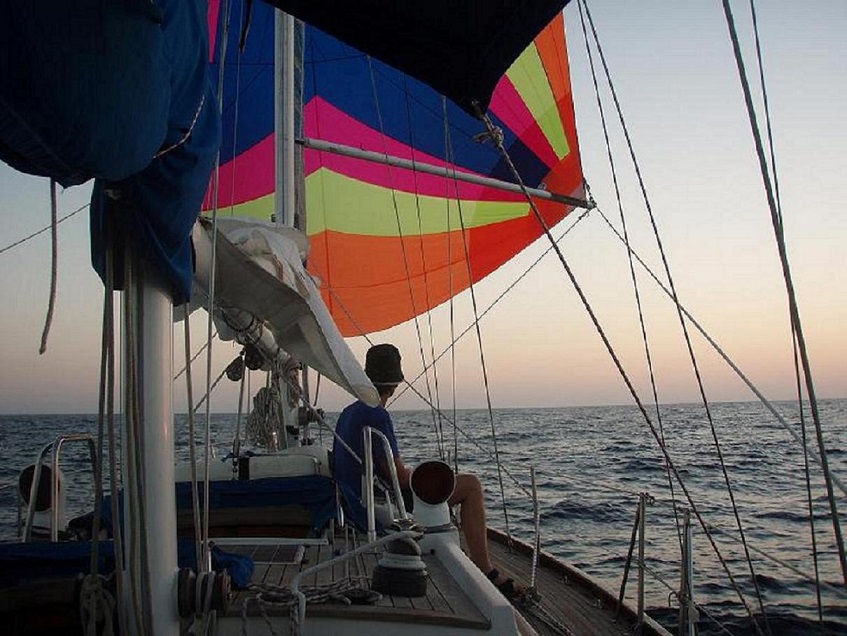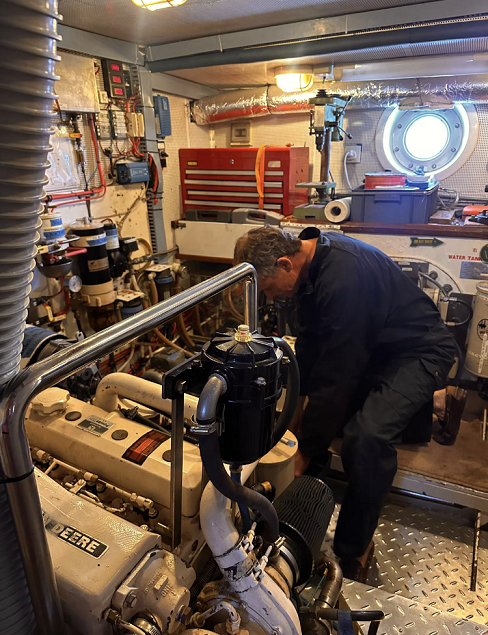Crossing an ocean in a motortrawler versus sailboat

South Pacific Familyadventure 2008
Claes Brodin
Wed 16 Apr 2025 21:47
Also in adult sailing life that was my "truth" and the more surprised and fascinated I was when I incidentally read Passagemaker about ocean going motortrawlers (with Nordhavn 46 being first).
Now after 10 years of ownership of Dora Mac,a Diesel Duck 462,it was time to cross an ocean. As mentioned before I crossed oceans in sailboats 3 times before (Atlantic twice and Pacific once),and Mercedes 3 times as well (Atlantic,Pacific and Indian Ocean).
We were both curious to compare our experiences allthough both of us had some concerns crossing an ocean in a motorboat. The major concerns were being dependent of an engine and also how to handle heavy weather.
Now after 21 days at sea(6+15) crossing the Atlantic the traditional "milk run" there are some significant differences to point out.
First we always look at forecasts differently compared to when on a sailboat. Good motortrawler weather is light winds and above all-small waves with long periods. On a sailboat you want wind, and seaway is not as importnat as on a motortrawler.
In "trawler weather" life is more comfortable than on a sailboat since batterypower is no issue and subsequently systems delivering comfort can be used 24/7 (eg. deepfreezer,watermaker,satellitecommunication,internet,autopilot,trashcompactor,aircons,washingmachine,hot water etc). Moreover you are better protected in the pilothouse from both wind,seaway and strong sun. In "non trawler " weather,which mainly means heavy seaway on the beam (high waves with short periods),trawlers roll a lot and allthough paravanes as well as finstabilizers both reduce the size and the speed of the rolling it can become very uncomfortable in a way you don´t experience on a sailboat.
Every sensible captain being ultimately responsible for everything onboard will have some sort of stress level during an ocean crossing. On a sailboat as well as on a motortrawler you learn all sounds onboard belonging to the normal spectre and when an adverse sound appears you react immidiately also when at sleep. The amount of sounds on a motortrawler is much bigger than on a sailboat,and also sometimes more difficult to identify. For me that means a higher constant stresslevel while on a motortrawler than on a sailboat and adverse sounds also tend to have worse consequensies.
Running an ocean crossing boat,wether a sailboat or a motortrawler,means constant maintainance with service and repairs.
While under way, the amount of work on a sailboat tends to be quite small, while on a motortrawler you need to follow a scheme of service concerning oil,oilfilters and fuelfilters to keep the engine happy. Once in port the level of work is still higher on a motortrawler allthough the level of comfort is also higher.
If ending up in heavy weather at sea both me and Mercedes would prefer to be on a sailboat. That might be due to the fact that we both have managed heavy weather at sea allthough only on sailboats and know that it works,while with Dora Mac we would have to follow the schoolbook and see IF it works (there are some notes written out there from experiences with Diesel Ducks in heavy weather bragging about their performance).
Finally both Mercedes and me are sailors at heart. I can´t deny that I miss moving over large waters driven only by the wind. At anchor though,with all systems working,a motortrawler is more comfortable.



